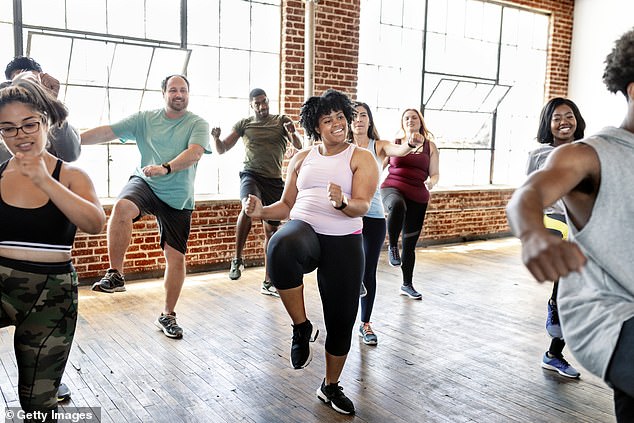Unggulan
- Dapatkan link
- X
- Aplikasi Lainnya
Brain Benefits from Exercise Last Into the Next Day
Most of us know how strenuous exercise can result in aching limbs the following day.
However, researchers have found that the advantages for the brain can also be experienced after 24 hours.
University College London Researchers from UCL discovered that the temporary cognitive enhancement our brain experiences after exercising lasts all through the subsequent day.
Those who did more moderate to vigorous physical activity than usual on a given day did better in memory tests the day after.
Experts said the improvements could be achieved by something as simple as running up the stairs.
In the short term, exercise increases blood flow to the brain and stimulates the release of neurotransmitters such as norepinephrine and dopamine which help a range of cognitive functions.
These neurochemical alterations are known to persist for several hours following physical activity.
Other research has indicated that exercise-related brain states persist longer, with findings pointing towards an improved mood lasting as much as 24 hours after exercising.
Individuals between the ages of 50 and 83 participated in wearing activity monitors for eight consecutive days and underwent daily cognitive assessments during this period.


Researchers examined the duration of time participants spent being inactive, engaging in mild exercise, and undertaking moderate to intense physical activities.
They also quantified sleep duration and time spent in lighter (rapid eye movement, or REM) sleep and deeper, slow-wave sleep.
After factoring in average levels of activity and sleep, they found that more moderate or vigorous physical activity compared to a person’s average was linked to better working memory and episodic memory (memory of events) the next day.
These advantages were also experienced by individuals who sat for shorter periods and slept for six hours or more.
Increased total sleep duration was associated with better performance in episodic and working memory tasks as well as enhanced psychomotor speed, which assesses how swiftly an individual perceives and reacts to their surroundings.

Those who had the most slow-wave - deep, restorative sleep - had better episodic memory, according to the findings published in the International Journal of Behavioral Nutrition and Physical Activity.
On the contrary, spending more time being inactive than normal was associated with a decline in working memory the following day.
Dr. Mikaela Bloomberg from UCL stated, "Our research indicates that the positive impact of physical activity on short-term memory might be prolonged beyond what was earlier anticipated—potentially extending into the following day rather than being limited only to a few hours post-exercise. Additionally, increasing one’s amount of sleep, specifically deep sleep, appears to enhance this memory boost."
'Moderate or intense physical activity includes anything that elevates your heartbeat - such as quick-paced walking, dancing, or climbing several staircases. This does not necessarily require organized workouts.'
'This was a limited study, so it must be repeated with a bigger participant group to ensure the reliability of the findings.'
Read more- Dapatkan link
- X
- Aplikasi Lainnya
Postingan Populer
Unmasking Misinformation: Journalist’s Quest for Verified Truth (International Edition)
- Dapatkan link
- X
- Aplikasi Lainnya
Zimbabwe Debuts World’s First Article 6 Carbon Registry: A Global Pioneering Move!
- Dapatkan link
- X
- Aplikasi Lainnya
Komentar
Posting Komentar